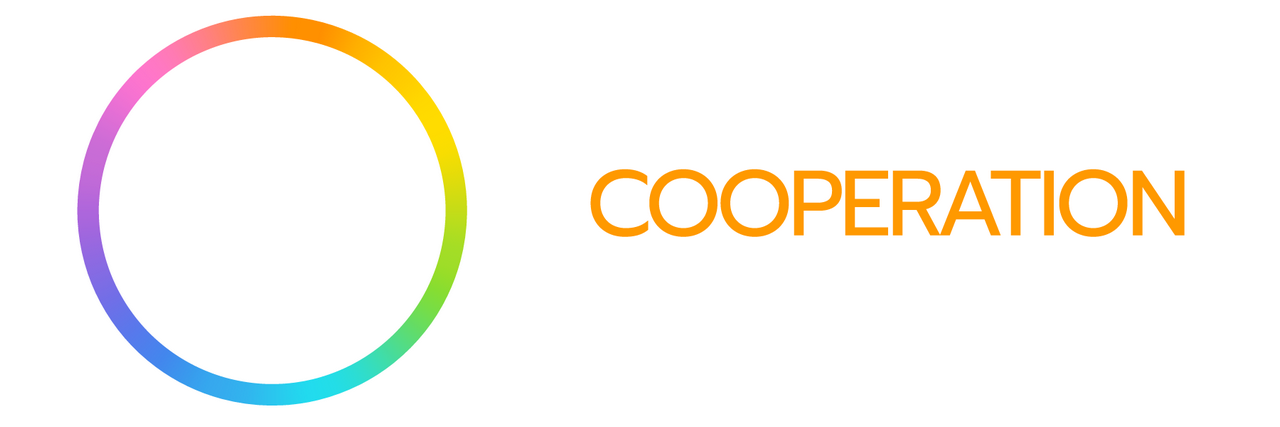
ACTING TOGETHER, WITH MUTUAL ENJOYMENT
Cooperation means acting together with mutual enjoyment of everyone
involved. A cooperation must also have neutral or positive effects on
anybody or anything external to the interaction.
Cooperation is a specific dynamic that happens only when the context, or
better the social ecosystem, allows it to emerge. It is an original
circumstance from where different individual goals, or sometimes very
similar desires, are fulfilled.
According to our
scientific model,
the social ecosystem in which cooperation may emerge should meet seven
conditions.
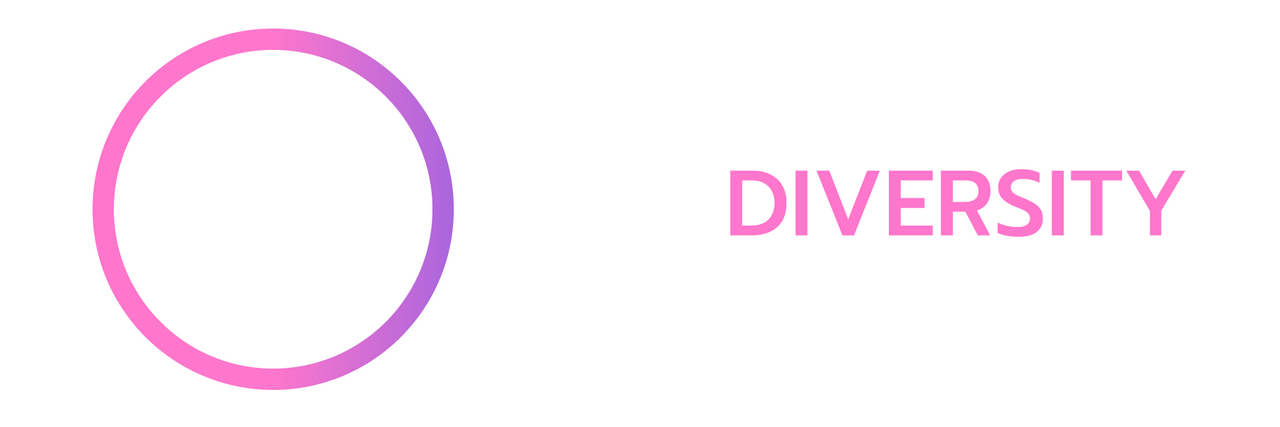
WE'RE ALL DIFFERENT
Diversity is a pre-condition of cooperation that always exists in any ecosystem. It is also a condition because it should not be inhibited. Cooperation is different from fanaticism and homologation, where every individual must conform to a unique idea, lifestyle, cult, imagery or human mechanisation. Without diversity, we lose beauty and innovation. Standardised jobs or constrained life dynamics, like workers in the industrial revolution factories, inhibit the emergence of cooperation. Having fun, playing games and telling different, intimate stories helps the emergence and the possibility of cooperation.
OUR EVOLUTIVE ADVANTAGE
Diversity is a potential of conflict, but also a potential of development. Anthropologically mankind reached high levels of survival and wealth also thanks to the natural tendency to pursue and develop different personal skills, generating the possibility to have more roles and functions for every participant in the community. Probably we are the most diverse and role-differentiated creatures on earth.
PERSONALITIES
The acknowledgement of different preferences, personalities and roles in the community is needed to create a good climate: when individuals have their personal identity respected by the group they accomplish great common results leading to community-wide advantages.
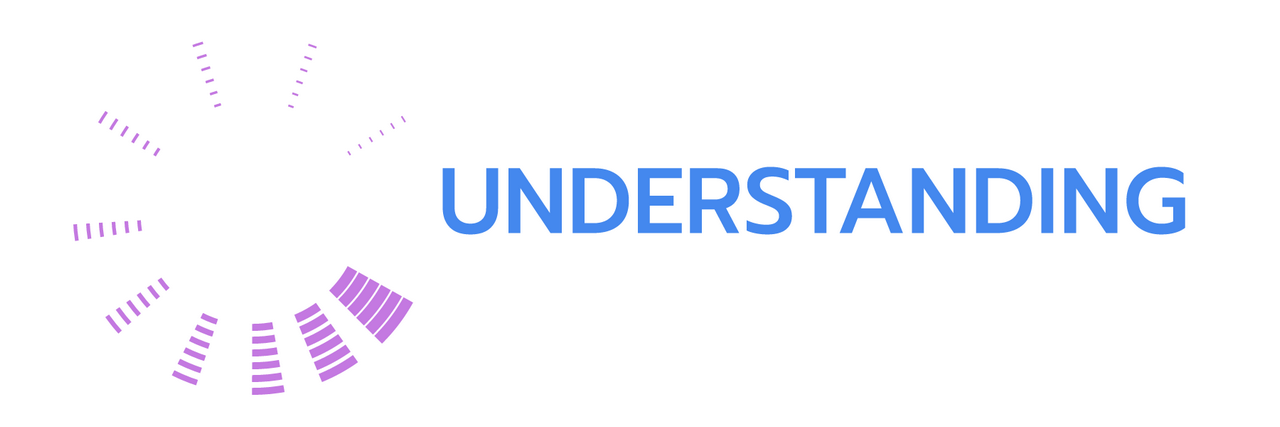
DIFFERENT PERSPECTIVES
When diversity brings different linguistic, behavioural, and cultural codes, we need the presence of common background that can act as a bridge to allow cooperation to emerge through integration.
CONFLICTUAL COLLABORATION
Conflictual collaboration is a form of generic collaboration that often occurs in groups when there is very low information flow, social and cultural diversities with lack of acceptance of the differences, usually forcing them into orthodoxy or uniformity. We propose different solutions to a state of conflict, that may arise due to misunderstanding even between people who appreciate one another.
COMMON CODES
Learning the beauty of a different way to interpret the reality and enjoying the pleasure of the difference is a great cooperation drive. Integrating and explaining languages and cultures, personalities and habits, points of view and interpretations brings more understanding. While religions, traditions and languages may be different, values like love, respect, safety or concepts like friendship, birth and parenthood can be strong common codes upon which we can build cross-diversity understanding. Enhancing empathy, the special common code of feelings, we can generate deep comprehension, leading everyone feel accepted and part of the community. All these concepts help cooperation to emerge together with mutual enjoyment.
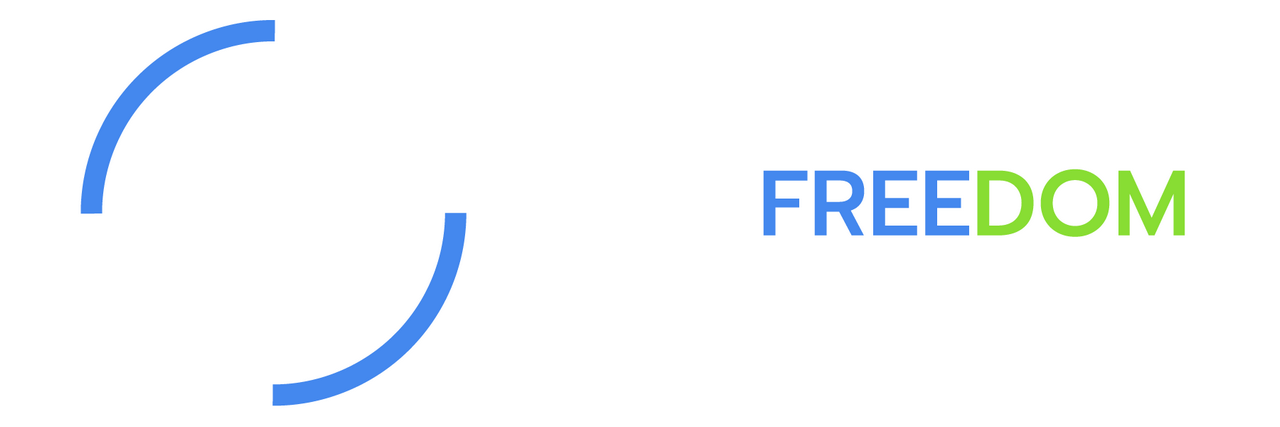
CHOICES
We can say there’s a generic collaboration even in slavery, imposition or manipulation, as people effectively do something together. They're not that happy, though. Lack of personal freedom, and absence of a personal choice in a generic collaborative interaction make it impossible to make it become a cooperation: there is no mutual enjoyment. To solve these kind of contextual issues, a good personal space or even separation are needed, even in a nice cooperation.
OUR PERSONAL STORY
It is natural to find high levels of aggression and competition in contexts where there’s imposition or forced behaviour. On the other side, in social ecosystems where cooperation emerges, the freedom of choice is wide, and the enjoyment is high. Freedom is anyways a very complex subject. The most enlightening way to see freedom is the possibility to recognise ourselves, our preferences and our personal story in the choices we make during our lifetime. When cooperating, it is necessary to learn how to proportionally and creatively integrate to balance freedom, care and equivalence.
SPACE
One of the most important expressions of freedom isn’t the possibility to
do anything that comes up in our mind, but an adequate, balanced social
context that allows personal space and access to services for everyone.
Once again, it is in the balance of the whole social ecosystem the secret
that allows individual, intimate, personal freedom.
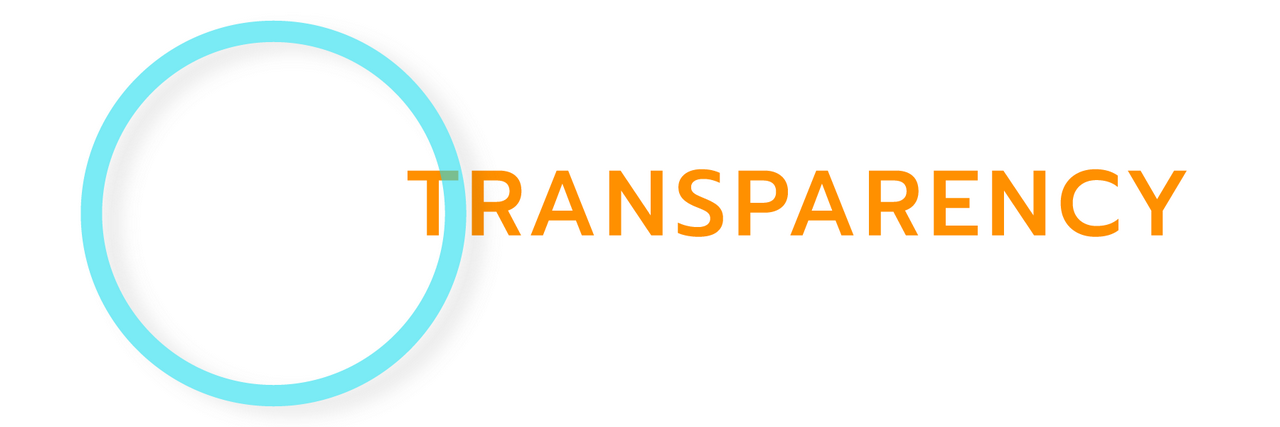
TRUTH OR CONTEXT?
Honesty is regarded as one of the most important values in many cultural contexts. However, truth is difficult to say and difficult to receive: it should be communicated with the right words and the right attitude. Transparency is related to access to information: this means that it is not our personal interpretation of truth that we want the other to have access to. Usually, instead of communicating the truth, it is better to communicate the contextual point of view with which we see things now or made a choice before.
BETRAYAL
When transparency ends, frauds, hoaxes or reticence make apparent reliable collaborations to make us feel betrayed. If we have nothing to hide, why not being transparent? It is important to tell the conditions and the limitations we are currently evaluating in our personal position.
FORGIVENESS
Do we want to know the truth to understand and take account of it or just to punish others if they made a mistake? Behind the exchange of personal information, and even of sensible data, there’s a great deal of acceptance. Most of us don’t say what they know or think just because they are afraid of the consequences. Only accepting the diversity of others we can see the reality behind the appearances. Being honest and transparent seems hard, but it is one of the ways in which you can change the world and your same personal life. The right social ecosystem usually has an embedded governance which supports transparency and truth acceptance.
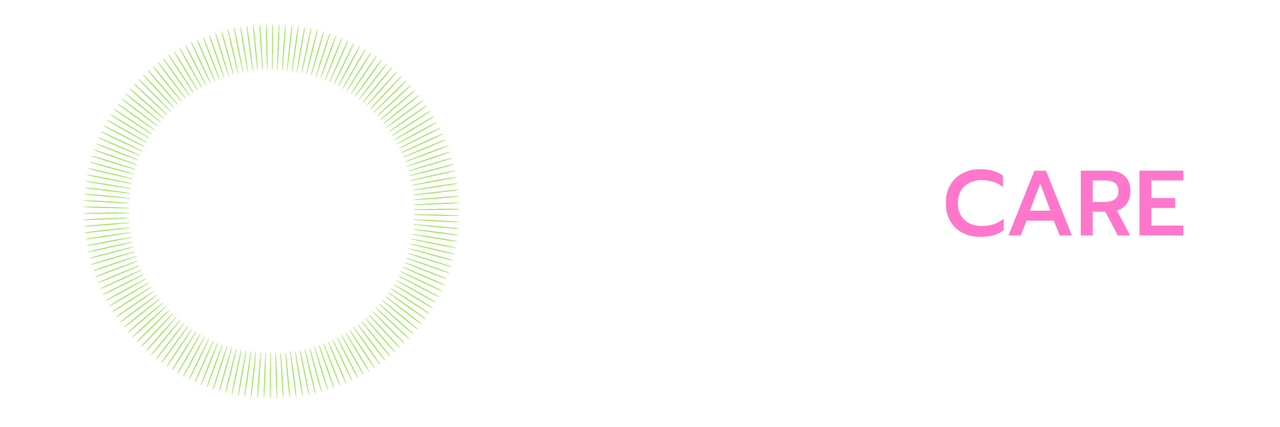
COORDINATION
The condition of "care" is related to coordination and respect of the social and natural ecosystems. When we receive services, like when we take a bus or a taxi, when our nations give us healthcare or educational facilities, when our families fulfill some of our needs or desires, when we hug each other, we receive care. Care means coordinating something needed by you with something needed by others. In our page about You, we exposed what you may find in Cooperacy that meets your personality, in about us instead what we do and could appreciate from you, in a transparent way.
EVERYONE AROUND YOU
Caring for others is a form of complex thinking that is able to generate mutual enjoyment. Usually care is not perceived as something fun or productive, but everyone of us needs and likes to receive attention. When respect and esteem are shared amongst everyone, productivity levels raise and even fun is better.
ECOSYSTEMS
Those interactions where there are common benefits but there is lack of
respect or care can not be considered a cooperation: there are negative
services that cut down the benefits and tend towards progressive damage or
long-term loss.
Unhealthy workplaces and local or global damaged environment,
psychological dependencies, absence of meritocracy, mobbing and in the
worst cases violence can’t lead to the emergence of cooperation.
The natural ecosystem is the base for our social context to be pleasant.
Humans, animals, plants, mountains, deserts and oceans: the whole planet
is connected and every part of it is needed like the organs of your body.
We believe the whole ecosystem is a
living being.
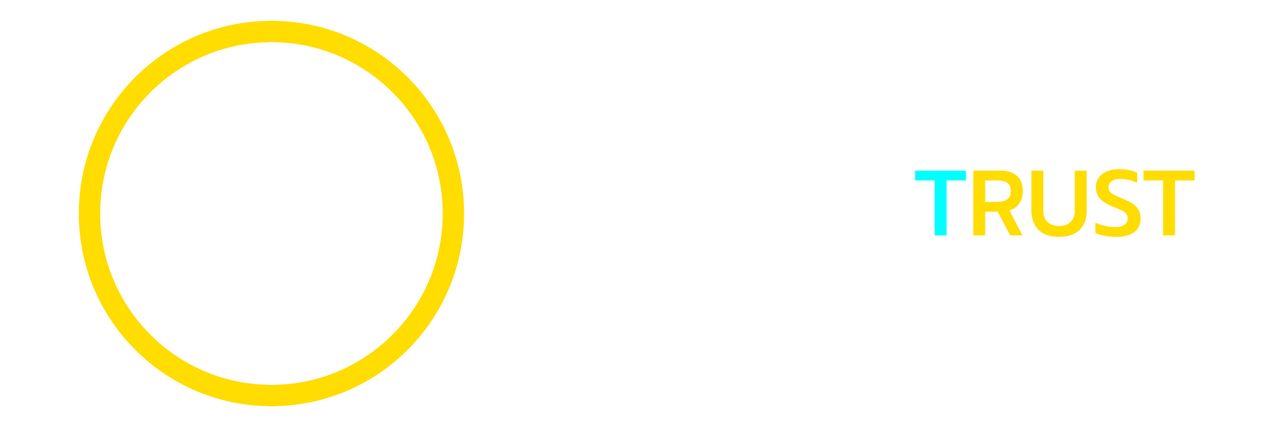
WHAT IS TRUST?
When we are not respected or cared, we become mistrustful, because we
developed a powerful evolutionary tool: trust. In neuroscience, trust is
represented by the probability, based on similar or past events, that an
interaction will be pleasurable in its results, called rewards. Rewards
can be intrinsic,
like something you personally like to do, or extrinsic, like when you like
money just because then using money you will do something you like.
When your rewards are mainly linear and extrinsic, that is, external to
your self identity, you start to lose your native personality. You may
even build up two or more contrasting selves, one who wants to live in the
nature with few things and another one who wants to be rich and live in a
skyscraper.
Trust in people can be intrinsic and extrinsic too. We may trust people
intrinsically, when we really like them, and extrinsically, when we trust
them according to the advantages they provide.
THE DIFFERENCE BETWEEN TRUST AND RELIABILITY
In the common language, and according to the different cultures, the word trust indicates both emotive connection and reliability. If I trust your values, your emotions, your personality, I trust in you. If you are reliable, I can count on you. So I can "emotively trust" you even if you are unreliable, because you are a person I "resonate with" and your being unrealiable is not intentional. In the opposite case I can count on you even if you’re not a friend of mine or someone I don't like: you are a reliable person and I can be sure of what we can agree on. These two kinds of trust are connected with two special kinds of rewards: real and relational benefits. Our idea of a cooperation platform tries to address trust and reliability balancing both levels of benefits.
BETRAYAL AND FEAR
When we are betrayed we tend to feel anger and a desire of damaging the
person we thought was worth of trust, because the opposite of trust is
fear, and fear and compromised goals bring anger.
Social systems can be punitive, like dictatorship and totalitarianism, or
overly based on benefits and performance, like extreme competitive
money-making based societies. In that case the high risks generate fear,
compromises our goals and brings subsequent anger. Having damaged
intrinsic trust in people, individuals seek extrinsic trust and rewards.
We look for friends who can give us benefits, not happiness, because
without benefits we may suffer, be afraid or feel excluded from the social
network. Trust is very important, because when people are afraid or
mistrust others, conflicts may arise quite often. As you can imagine,
trust depends on the whole social ecosystem balance and
governance for
allowing the emergence of cooperation and mutual enjoyment.
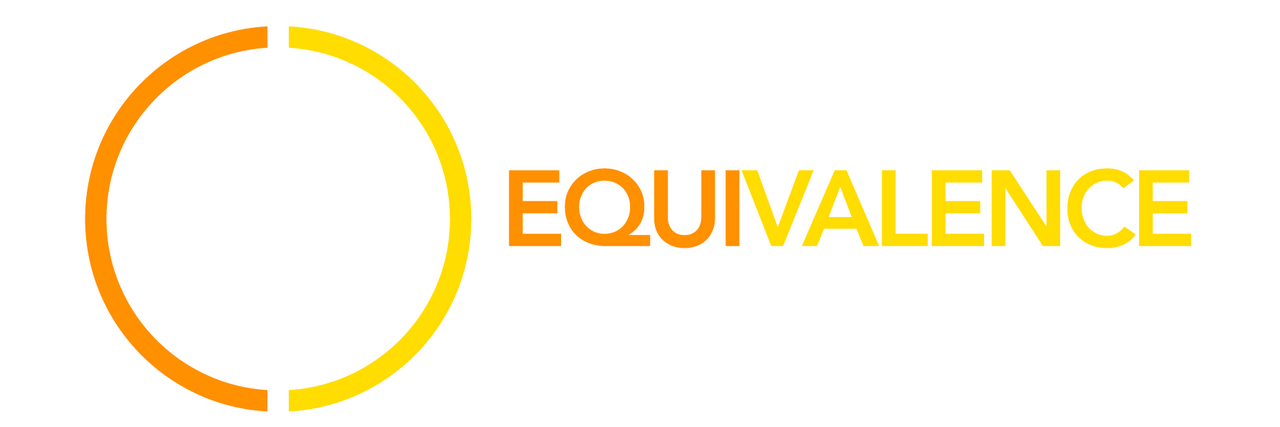
EQUALITY?
Equivalence is the simplest condition and evidence of cooperation.
Everyone of us is different, but the idea that everyone is happy reminds
us of beautiful moments of sharing where our happiness was even stronger
because it was also in the eyes of the others around us. The idea of being
"equal" seems right, but in reality it is not. If I am a little kid, I
probably need a different meal compared to a woman or a man.
A kid meal, even if of less amount, is equivalent to a standard
meal for a grown-up human. Kids may also prefer more sweets than adults,
but shouldn't like a glass of wine. Diabetics may want the same sweets as
their kids, but alas, they know it wouldn't be a good choice. Individuals
and their diversity should be considered for equivalent benefits, not
equal ones, in order to live equivalent lives.
COOPERATION IS DIFFERENT THAN ALTRUISM
Cooperation is different from altruism, solidarity and donation where we
see a “recipient” that simply “gets” in a one-way action. It is easy to
say that if you follow only your personal benefit, you are in the world of
egoism. Sometimes, instead, you are only focused on giving and you forget
about yourself. Cooperation is an equilibrium of the two, a situation in
which you're selfish while being altruist -and feel happy about it.
Cooperation is complex: it is way more than the simple idea of giving or
getting and emerges when the two actions find their
integration.
BENEFITS AND RELATIONS
Equivalence is not a mere accounting of things. You may enjoy food, a new
car, but also a good friendship. An equivalence of real benefits is found
when anybody gets equivalent goods, services or valuables as the other
participants. An equivalence of relational benefits, instead, happens when
you are as averagely happy as the other participants are. The first one is
good, it is usually called a win-win, but it is not enough. Cooperation is
not a mere goods and services exchange, but a pleasant relational exchange
too. These are the base concepts we rely on in our
platform.
Cooperation emerges -and it has its evidence- when in a social ecosystem
there are good benefits and good relations for everyone.
To support your social context to become a social ecosystem, learn about the proportional creative integration and the different solutions that can resolve eventual contextual contrasts, or join Cooperacy and participate in our activities, our live webinars or our efforts in spreading the knowledge of cooperation.